- Home
- Nora Roberts
The Art of Deception
The Art of Deception Read online
CHAPTER 1
It was more like a castle than a house. The stone was gray, but beveled at the edges, Herodian-style, so that it shimmered with underlying colors. Towers and turrets jutted toward the sky, joined together by a crenellated roof. Windows were mullioned, long and narrow with diamond-shaped panes.
The structure—Adam would never think of it as anything so ordinary as a house—loomed over the Hudson, audacious and eccentric and, if such things were possible, pleased with itself. If the stories were true, it suited its owner perfectly.
All it required, Adam decided as he crossed the flagstone courtyard, was a dragon and a moat.
Two grinning gargoyles sat on either side of the wide stone steps. He passed by them with a reservation natural to a practical man. Gargoyles and turrets could be accepted in their proper place—but not in rural New York, a few hours’ drive out of Manhattan.
Deciding to reserve judgment, he lifted the heavy brass knocker and let it fall against a door of thick Honduras mahogany. After a third pounding, the door creaked open. With strained patience, Adam looked down at a small woman with huge gray eyes, black braids and a soot-streaked face. She wore a rumpled sweatshirt and jeans that had seen better days. Lazily, she rubbed her nose with the back of her hand and stared back.
“Hullo.”
He bit back a sigh, thinking that if the staff ran to half-witted maids, the next few weeks were going to be very tedious. “I’m Adam Haines. Mr. Fairchild is expecting me,” he enunciated.
Her eyes narrowed with curiosity or suspicion, he couldn’t be sure. “Expecting you?” Her accent was broad New England. After another moment of staring, she frowned, shrugged, then moved aside to let him in.
The hall was wide and seemingly endless. The paneling gleamed a dull deep brown in the diffused light. Streaks of sun poured out of a high angled window and fell over the small woman, but he barely noticed. Paintings. For the moment, Adam forgot the fatigue of the journey and his annoyance. He forgot everything else but the paintings.
Van Gogh, Renoir, Monet. A museum could claim no finer exhibition. The power pulled at him. The hues, the tints, the brush strokes, and the overall magnificence they combined to create, tugged at his senses. Perhaps, in some strange way, Fairchild had been right to house them in something like a fortress. Turning, Adam saw the maid with her hands loosely folded, her huge gray eyes on his face. Impatience sprang back.
“Run along, will you? Tell Mr. Fairchild I’m here.”
“And who might you be?” Obviously impatience didn’t affect her.
“Adam Haines,” he repeated. He was a man accustomed to servants—and one who expected efficiency.
“Ayah, so you said.”
How could her eyes be smoky and clear at the same time? he wondered fleetingly. He gave a moment’s thought to the fact that they reflected a maturity and intelligence at odds with her braids and smeared face. “Young lady…” He paced the words, slowly and distinctly. “Mr. Fairchild is expecting me. Just tell him I’m here. Can you handle that?”
A sudden dazzling smile lit her face. “Ayah.”
The smile threw him off. He noticed for the first time that she had an exquisite mouth, full and sculpted. And there was something…something under the soot. Without thinking, he lifted a hand, intending to brush some off. The tempest hit.
“I can’t do it! I tell you it’s impossible. A travesty!” A man barreled down the long, curved stairs at an alarming rate. His face was shrouded in tragedy, his voice croaked with doom. “This is all your fault.” Coming to a breathless stop, he pointed a long, thin finger at the little maid. “It’s on your head, make no mistake.”
Robin Goodfellow, Adam thought instantly. The man was the picture of Puck, short with a spritely build, a face molded on cherubic lines. The spare thatch of light hair nearly stood on end. He seemed to dance. His thin legs lifted and fell on the landing as he waved the long finger at the dark-haired woman. She remained serenely undisturbed.
“Your blood pressure’s rising every second, Mr. Fairchild. You’d better take a deep breath or two before you have a spell.”
“Spell!” Insulted, he danced faster. His face glowed pink with the effort. “I don’t have spells, girl. I’ve never had a spell in my life.”
“There’s always a first time.” She nodded, keeping her fingers lightly linked. “Mr. Adam Haines is here to see you.”
“Haines? What the devil does Haines have to do with it? It’s the end, I tell you. The climax.” He placed a hand dramatically over his heart. The pale blue eyes watered so that for one awful moment, Adam thought he’d weep. “Haines?” he repeated. Abruptly he focused on Adam with a brilliant smile. “I’m expecting you, aren’t I?”
Cautiously Adam offered his hand. “Yes.”
“Glad you could come, I’ve been looking forward to it.” Still showing his teeth, he pumped Adam’s hand. “Into the parlor,” he said, moving his grip from Adam’s hand to his arm. “We’ll have a drink.” He walked with the quick bouncing stride of a man who hadn’t a worry in the world.
In the parlor Adam had a quick impression of antiques and old magazines. At a wave of Fairchild’s hand he sat on a horsehair sofa that was remarkably uncomfortable. The maid went to an enormous stone fireplace and began to scrub out the hearth with quick, tuneful little whistles.
“I’m having Scotch,” Fairchild decided, and reached for a decanter of Chivas Regal.
“That’ll be fine.”
“I admire your work, Adam Haines.” Fairchild offered the Scotch with a steady hand. His face was calm, his voice moderate. Adam wondered if he’d imagined the scene on the stairs.
“Thank you.” Sipping Scotch, Adam studied the little genius across from him.
Small networks of lines crept out from Fairchild’s eyes and mouth. Without them and the thinning hair, he might have been taken for a very young man. His aura of youth seemed to spring from an inner vitality, a feverish energy. The eyes were pure, unfaded blue. Adam knew they could see beyond what others saw.
Philip Fairchild was, indisputably, one of the greatest living artists of the twentieth century. His style ranged from the flamboyant to the elegant, with a touch of everything in between. For more than thirty years, he’d enjoyed a position of fame, wealth and respect in artistic and popular circles, something very few people in his profession achieved during their lifetime.
Enjoy it he did, with a temperament that ranged from pompous to irascible to generous. From time to time he invited other artists to his house on the Hudson, to spend weeks or months working, absorbing or simply relaxing. At other times, he barred everyone from the door and went into total seclusion.
“I appreciate the opportunity to work here for a few weeks, Mr. Fairchild.”
“My pleasure.” The artist sipped Scotch and sat, gesturing with a regal wave of his hand—the king granting benediction.
Adam successfully hid a smirk. “I’m looking forward to studying some of your paintings up close. There’s such incredible variety in your work.”
“I live for variety,” Fairchild said with a giggle. From the hearth came a distinct snort. “Disrespectful brat,” Fairchild muttered into his drink. When he scowled at her, the maid tossed a braid over her shoulder and plopped her rag noisily into the bucket. “Cards!” Fairchild bellowed, so suddenly Adam nearly dumped the Scotch in his lap.
“I beg your pardon?”
“No need for that,” Fairchild said graciously and shouted again. At the second bellow the epitome of butlers walked into the parlor.
“Yes, Mr. Fairchild.” His voice was grave, lightly British. The dark suit he wore was a discreet contrast to the white hair and pale skin. He held himself like a soldier.
“See to Mr. Hain
es’s car, Cards, and his luggage. The Wedgwood guest room.”
“Very good, sir,” the butler agreed after a slight nod from the woman at the hearth.
“And put his equipment in Kirby’s studio,” Fairchild added, grinning as the hearth scrubber choked. “Plenty of room for both of you,” he told Adam before he scowled. “My daughter, you know. She’s doing sculpture, up to her elbows in clay or chipping at wood and marble. I can’t cope with it.” Gripping his glass in both hands, Fairchild bowed his head. “God knows I try. I’ve put my soul into it. And for what?” he demanded, jerking his head up again. “For what?”
“I’m afraid I—”
“Failure!” Fairchild moaned, interrupting him. “To have to deal with failure at my age. It’s on your head,” he told the little brunette again. “You have to live with it—if you can.”
Turning, she sat on the hearth, folded her legs under her and rubbed more soot on her nose. “You can hardly blame me if you have four thumbs and your soul’s lost.” The accent was gone. Her voice was low and smooth, hinting of European finishing schools. Adam’s eyes narrowed. “You’re determined to be better than I,” she went on. “Therefore, you were doomed to fail before you began.”
“Doomed to fail! Doomed to fail, am I?” He was up and dancing again, Scotch sloshing around in his glass. “Philip Fairchild will overcome, you heartless brat. He shall triumph! You’ll eat your words.”
“Nonsense.” Deliberately, she yawned. “You have your medium, Papa, and I have mine. Learn to live with it.”
“Never.” He slammed a hand against his heart again. “Defeat is a four-letter word.”
“Six,” she corrected, and, rising, commandeered the rest of his Scotch.
He scowled at her, then at his empty glass. “I was speaking metaphorically.”
“How clever.” She kissed his cheek, transferring soot.
“Your face is filthy,” Fairchild grumbled.
Lifting a brow, she ran a finger down his cheek. “So’s yours.”
They grinned at each other. For a flash, the resemblance was so striking, Adam wondered how he’d missed it. Kirby Fairchild, Philip’s only child, a well-respected artist and eccentric in her own right. Just what, Adam wondered, was the darling of the jet set doing scrubbing out hearths?
“Come along, Adam.” Kirby turned to him with a casual smile. “I’ll show you to your room. You look tired. Oh, Papa,” she added as she moved to the door, “this week’s issue of People came. It’s on the server. That’ll keep him entertained,” she said to Adam as she led him up the stairs.
He followed her slowly, noting that she walked with the faultless grace of a woman who’d been taught how to move. The pigtails swung at her back. Jeans, worn white at the stress points, had no designer label on the back pocket. Her canvas Nikes had broken shoelaces.
Kirby glided along the second floor, passing half a dozen doors before she stopped. She glanced at her hands, then at Adam. “You’d better open it. I’ll get the knob filthy.”
He pushed open the door and felt like he was stepping back in time. Wedgwood blue dominated the color scheme. The furniture was all Middle Georgian—carved armchairs, ornately worked tables. Again there were paintings, but this time, it was the woman behind him who held his attention.
“Why did you do that?”
“Do what?”
“Put on that act at the door.” He walked back to where she stood at the threshold. Looking down, he calculated that she barely topped five feet. For the second time he had the urge to brush the soot from her face to discover what lay beneath.
“You looked so polished, and you positively glowered.” She leaned a shoulder against the doorjamb. There was an elegance about him that intrigued her, because his eyes were sharp and arrogant. Though she didn’t smile, the amusement in her expression was soft and ripe. “You were expecting a dimwitted parlor maid, so I made it easy for you. Cocktails at seven. Can you find your way back, or shall I come for you?”
He’d make do with that for now. “I’ll find it.”
“All right. Ciao, Adam.”
Unwillingly fascinated, he watched her until she’d turned the corner at the end of the hall. Perhaps Kirby Fairchild would be as interesting a nut to crack as her father. But that was for later.
Adam closed the door and locked it. His bags were already set neatly beside the rosewood wardrobe. Taking the briefcase, Adam spun the combination lock and drew up the lid. He pulled out a small transmitter and flicked a switch.
“I’m in.”
“Password,” came the reply.
He swore, softly and distinctly. “Seagull. And that is, without a doubt, the most ridiculous password on record.”
“Routine, Adam. We’ve got to follow routine.”
“Sure.” There’d been nothing routine since he’d stopped his car at the end of the winding uphill drive. “I’m in, McIntyre, and I want you to know how much I appreciate your dumping me in this madhouse.” With a flick of his thumb, he cut McIntyre off.
* * *
Without stopping to wash, Kirby jogged up the steps to her father’s studio. She opened the door, then slammed it so that jars and tubes of paint shuddered on their shelves.
“What have you done this time?” she demanded.
“I’m starting over.” Wispy brows knit, he huddled over a moist lump of clay. “Fresh start. Rebirth.”
“I’m not talking about your futile attempts with clay. Adam Haines,” she said before he could retort. Like a small tank, she advanced on him. Years before, Kirby had learned size was of no consequence if you had a knack for intimidation. She’d developed it meticulously. Slamming her palms down on his worktable, she stood nose to nose with him. “What the hell do you mean by asking him here and not even telling me?”
“Now, now, Kirby.” Fairchild hadn’t lived six decades without knowing when to dodge and weave. “It simply slipped my mind.”
Better than anyone else, Kirby knew nothing slipped his mind. “What’re you up to now, Papa?”
“Up to?” He smiled guilelessly.
“Why did you ask him here now, of all times?”
“I’ve admired his work. So’ve you,” he pointed out when her mouth thinned. “He wrote such a nice letter about Scarlet Moon when it was exhibited at the Metropolitan last month.”
Her brow lifted, an elegant movement under a layer of soot. “You don’t invite everyone who compliments your work.”
“Of course not, my sweet. That would be impossible. One must be…selective. Now I must get back to my work while the mood’s flowing.”
“Something’s going to flow,” she promised. “Papa, if you’ve a new scheme after you promised—”
“Kirby!” His round, smooth face quivered with emotion. His lips trembled. It was only one of his talents. “You’d doubt the word of your own father? The seed that spawned you?”
“That makes me sound like a gardenia, and it won’t work.” She crossed her arms over her chest. Frowning, Fairchild poked at the unformed clay.
“My motives are completely altruistic.”
“Hah.”
“Adam Haines is a brilliant young artist. You’ve said so yourself.”
“Yes, he is, and I’m sure he’d be delightful company under different circumstances.” She leaned forward, grabbing her father’s chin in her hand. “Not now.”
“Ungracious,” Fairchild said with disapproval. “Your mother, rest her soul, would be very disappointed in you.”
Kirby ground her teeth. “Papa, the Van Gogh!”
“Coming along nicely,” he assured her. “Just a few more days.”
Knowing she was in danger of tearing out her hair, she stalked to the tower window. “Oh, bloody murder.”
Senility, she decided. It had to be senility. How could he consider having that man here now? Next week, next month, but now? That man, Kirby thought ruthlessly, was nobody’s fool.
At first glance she’d decided he wasn’t just attr
active—very attractive—but sharp. Those big camel’s eyes gleamed with intelligence. The long, thin mouth equaled determination. Perhaps he was a bit pompous in his bearing and manner, but he wasn’t soft. No, she was certain instinctively that Adam Haines would be hard as nails.
She’d like to do him in bronze, she mused. The straight nose, the sharp angles and planes in his face. His hair was nearly the color of deep, polished bronze, and just a tad too long for convention. She’d want to capture his air of arrogance and authority. But not now!
Sighing, she moved her shoulders. Behind her back, Fairchild grinned. When she turned back to him, he was studiously intent on his clay.
“He’ll want to come up here, you know.” Despite the soot, she dipped her hands in her pockets. They had a problem; now it had to be dealt with. For the better part of her life, Kirby had sorted through the confusion her father gleefully created. The truth was, she’d have had it no other way. “It would seem odd if we didn’t show him your studio.”

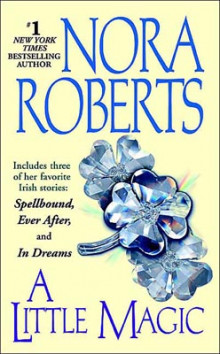 A Little Magic
A Little Magic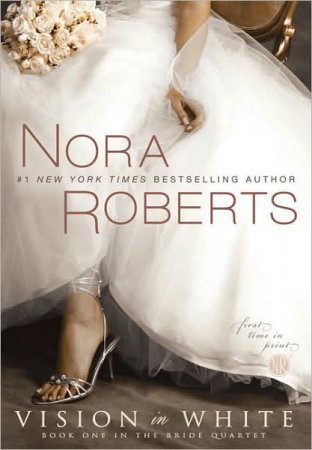 Vision in White
Vision in White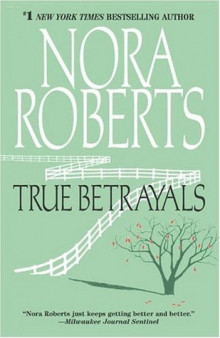 True Betrayals
True Betrayals The Next Always
The Next Always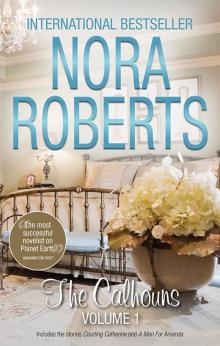 A Man for Amanda
A Man for Amanda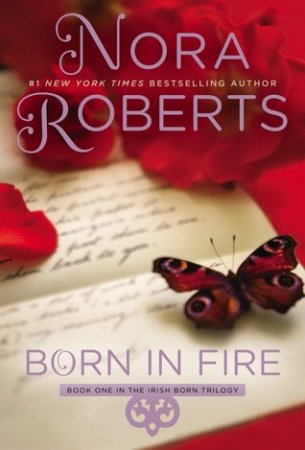 Born in Fire
Born in Fire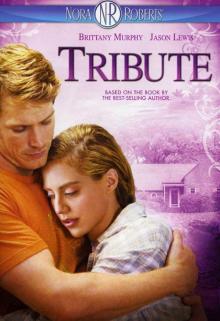 Tribute
Tribute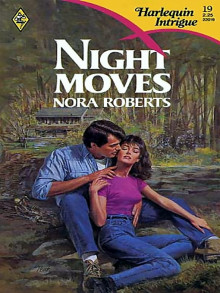 Night Moves
Night Moves Dance Upon the Air
Dance Upon the Air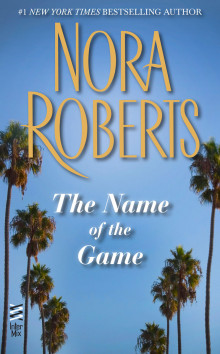 The Name of the Game
The Name of the Game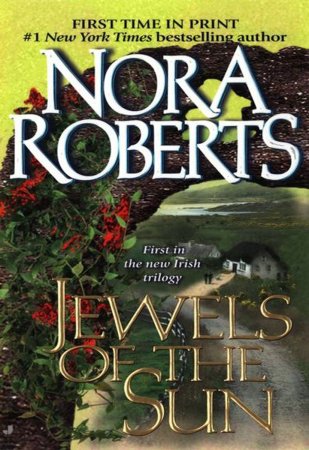 Jewels of the Sun
Jewels of the Sun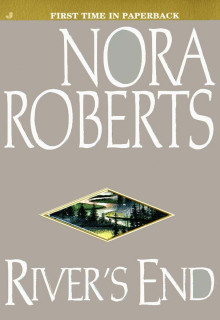 River's End
River's End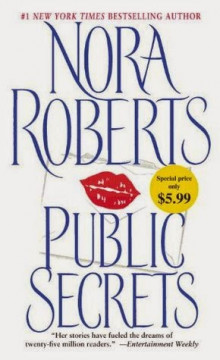 Public Secrets
Public Secrets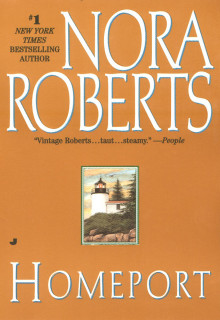 Homeport
Homeport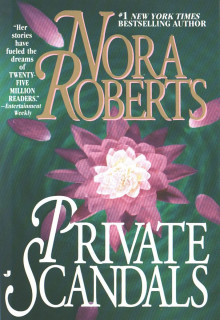 Private Scandals
Private Scandals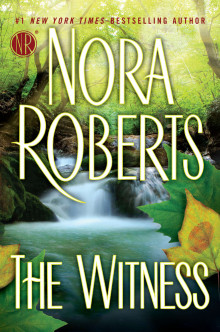 The Witness
The Witness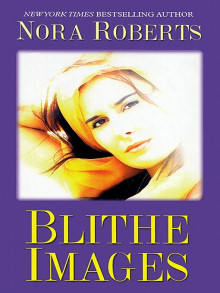 Blithe Images
Blithe Images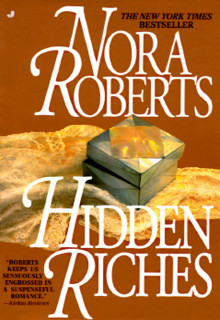 Hidden Riches
Hidden Riches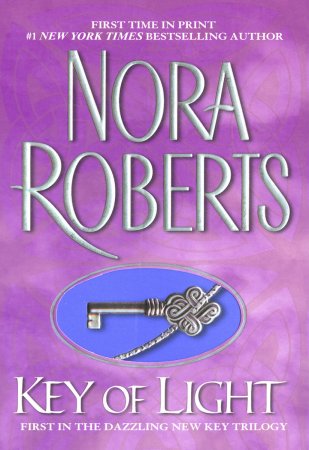 Key of Light
Key of Light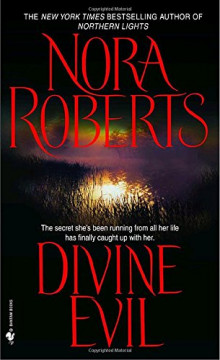 Divine Evil
Divine Evil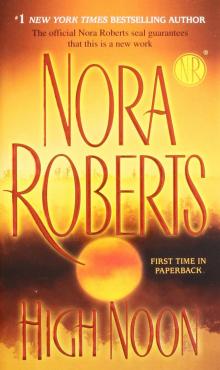 High Noon
High Noon Blue Dahlia
Blue Dahlia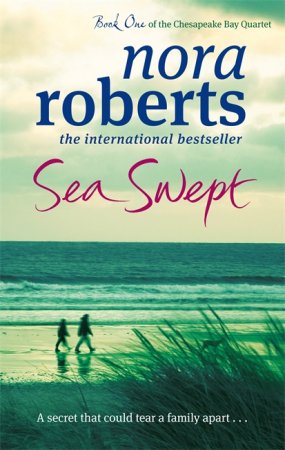 Sea Swept
Sea Swept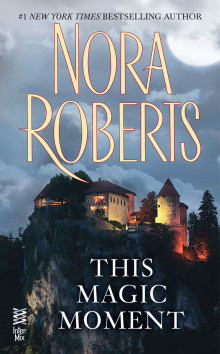 This Magic Moment
This Magic Moment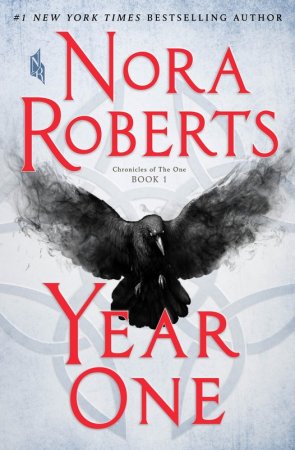 Year One
Year One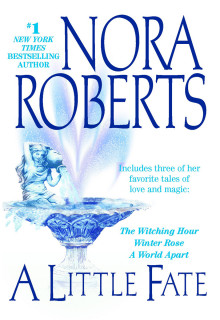 A Little Fate
A Little Fate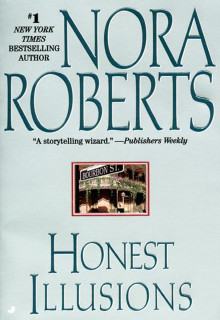 Honest Illusions
Honest Illusions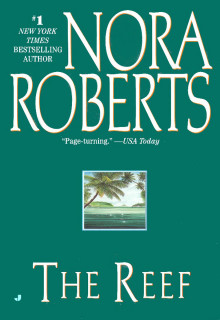 The Reef
The Reef Shelter in Place
Shelter in Place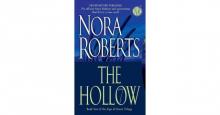 The Hollow
The Hollow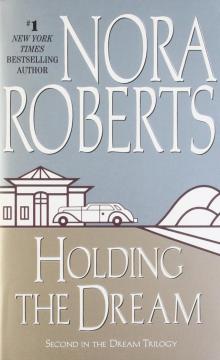 Holding the Dream
Holding the Dream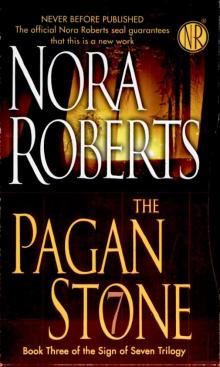 The Pagan Stone
The Pagan Stone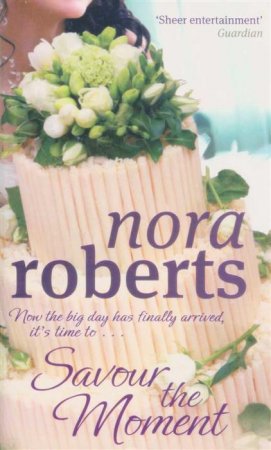 Savour the Moment
Savour the Moment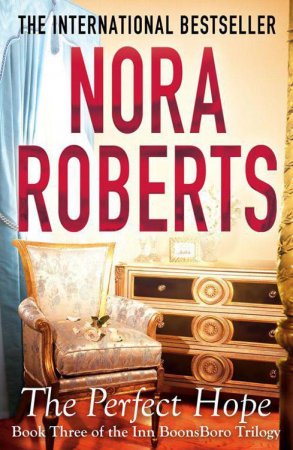 The Perfect Hope
The Perfect Hope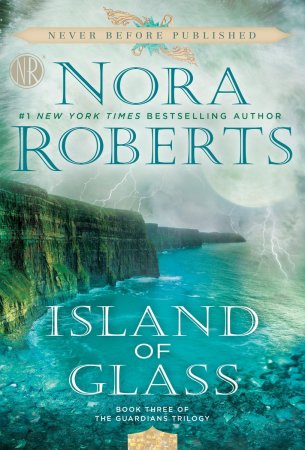 Island of Glass
Island of Glass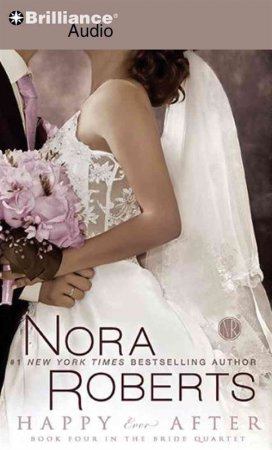 Happy Ever After
Happy Ever After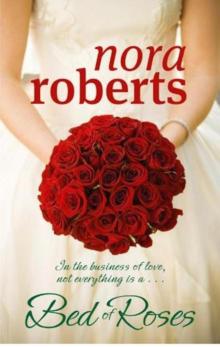 Bed of Roses
Bed of Roses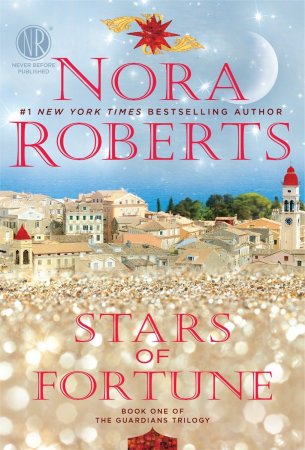 Stars of Fortune
Stars of Fortune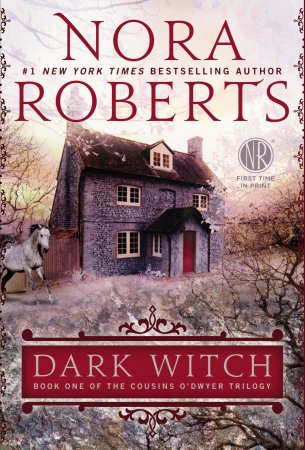 Dark Witch
Dark Witch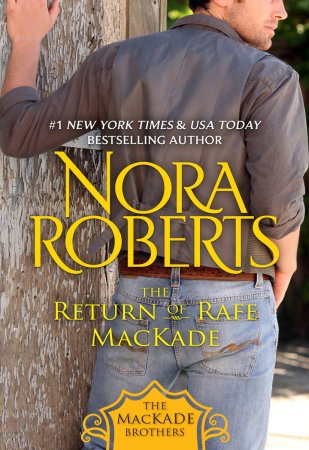 The Return of Rafe MacKade
The Return of Rafe MacKade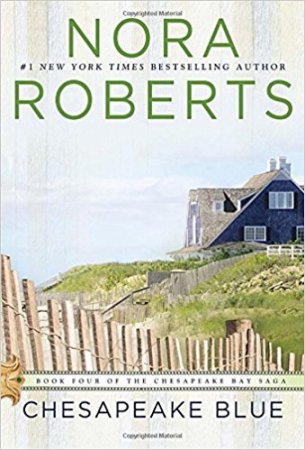 Chesapeake Blue
Chesapeake Blue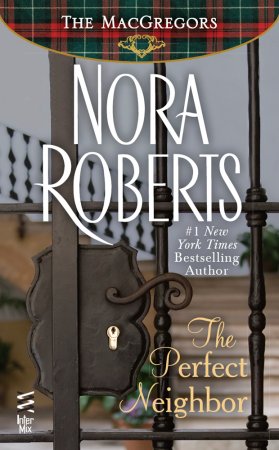 The Perfect Neighbor
The Perfect Neighbor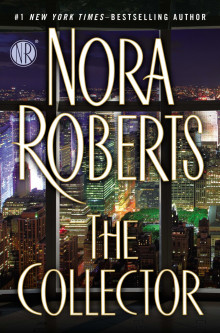 The Collector
The Collector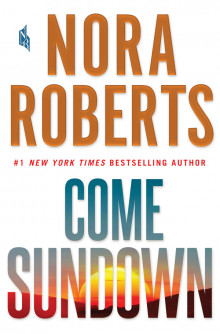 Come Sundown
Come Sundown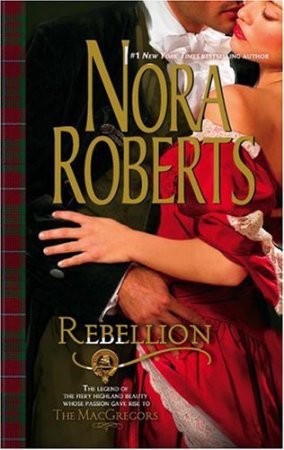 Rebellion
Rebellion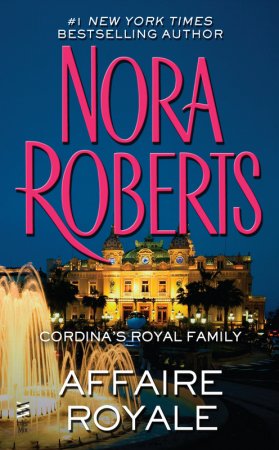 Affaire Royale
Affaire Royale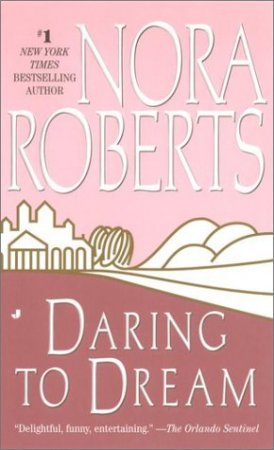 Daring to Dream
Daring to Dream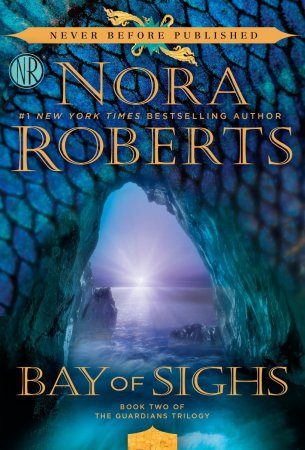 Bay of Sighs
Bay of Sighs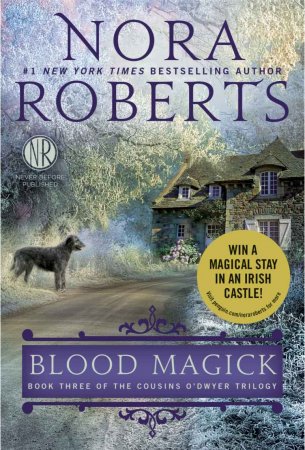 Blood Magick
Blood Magick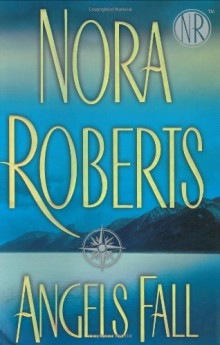 Angels Fall
Angels Fall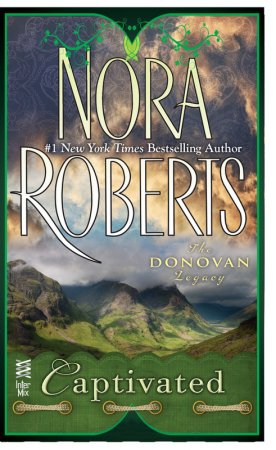 Captivated
Captivated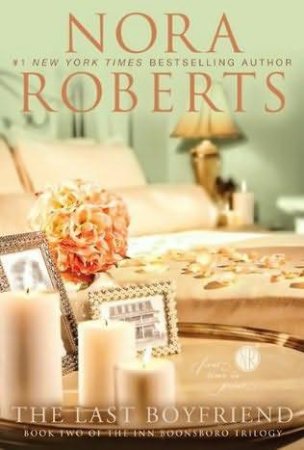 The Last Boyfriend
The Last Boyfriend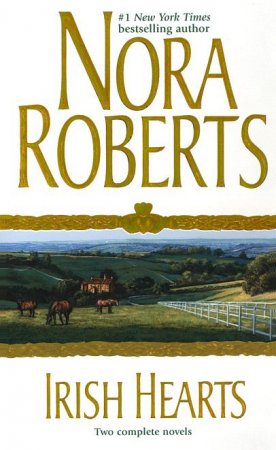 Irish Thoroughbred
Irish Thoroughbred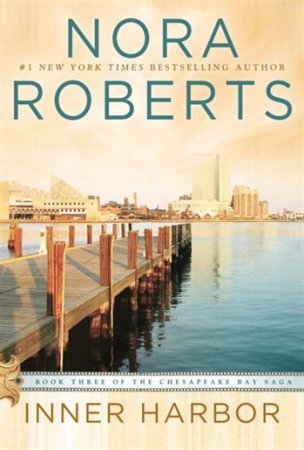 Inner Harbor
Inner Harbor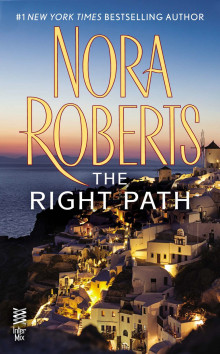 The Right Path
The Right Path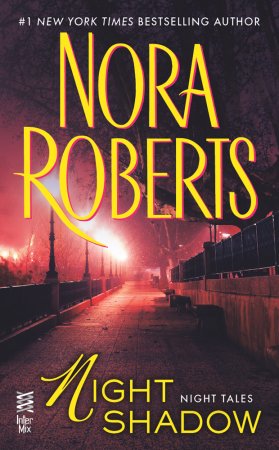 Night Shadow
Night Shadow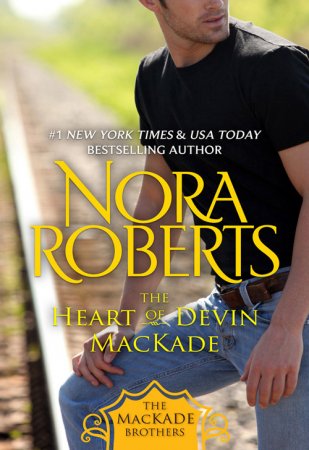 The Heart of Devin MacKade
The Heart of Devin MacKade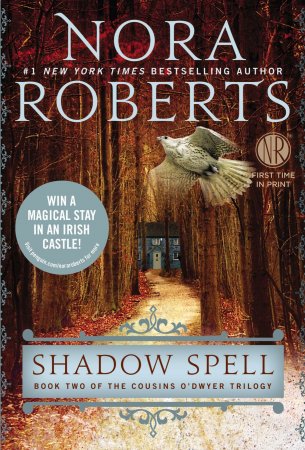 Shadow Spell
Shadow Spell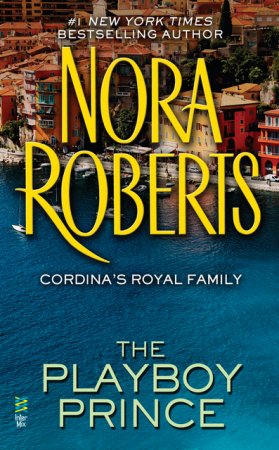 The Playboy Prince
The Playboy Prince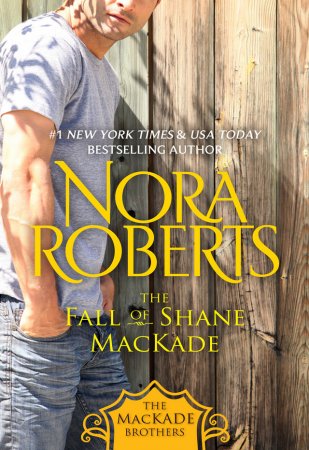 The Fall of Shane MacKade
The Fall of Shane MacKade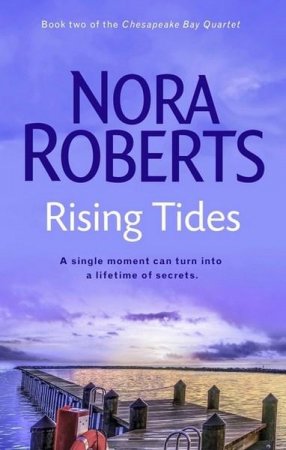 Rising Tides
Rising Tides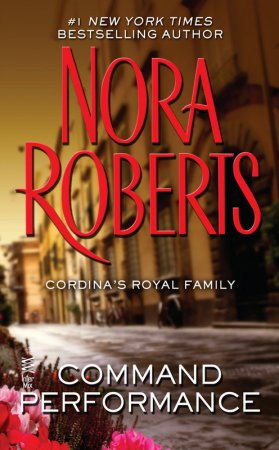 Command Performance
Command Performance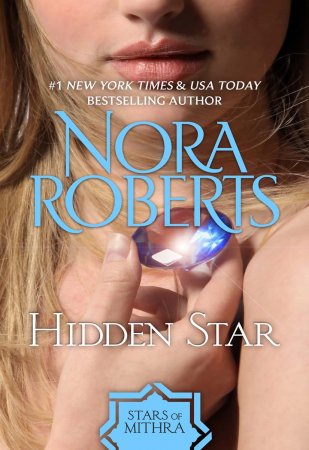 Hidden Star
Hidden Star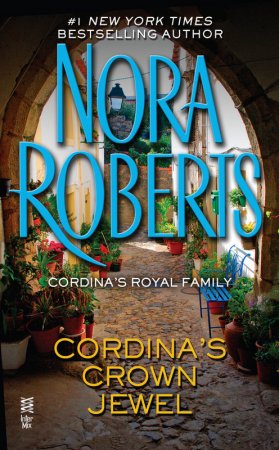 Cordina's Crown Jewel
Cordina's Crown Jewel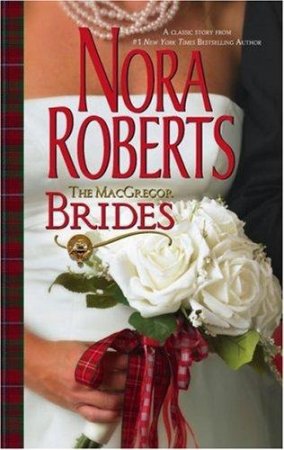 The MacGregor Brides
The MacGregor Brides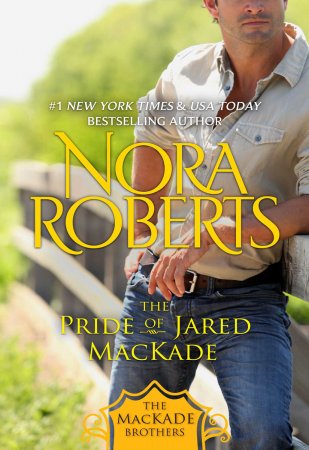 The Pride of Jared MacKade
The Pride of Jared MacKade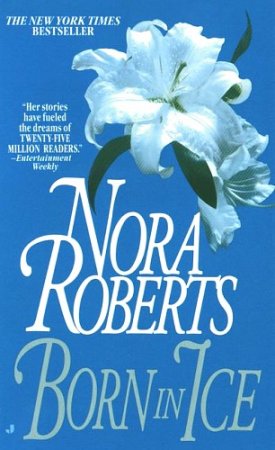 Born in Ice
Born in Ice Whiskey Beach
Whiskey Beach The Last Honest Woman
The Last Honest Woman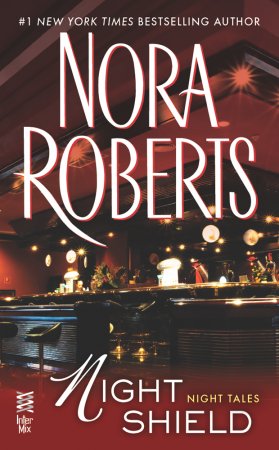 Night Shield
Night Shield Born in Shame
Born in Shame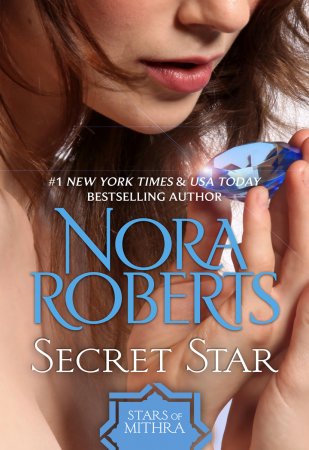 Secret Star
Secret Star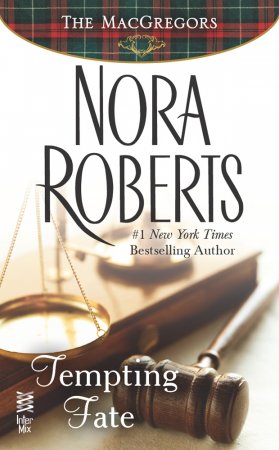 Tempting Fate
Tempting Fate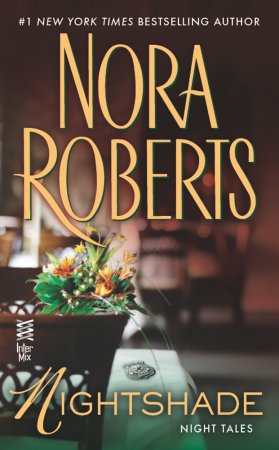 Nightshade
Nightshade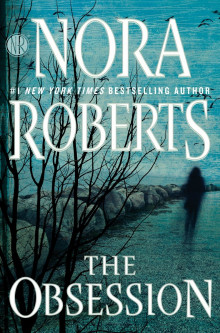 The Obsession
The Obsession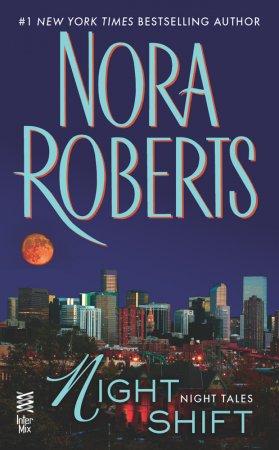 Night Shift
Night Shift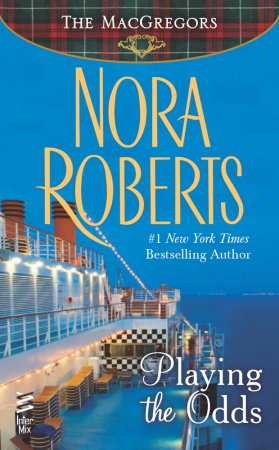 Playing The Odds
Playing The Odds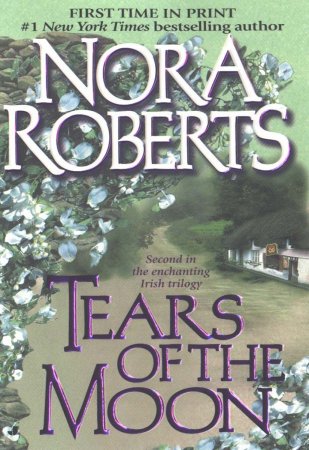 Tears of the Moon
Tears of the Moon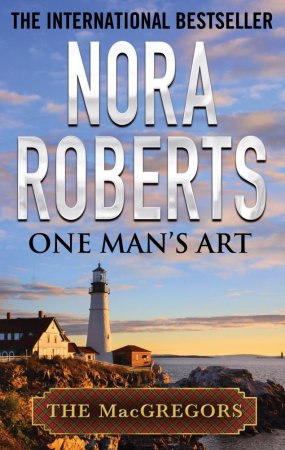 One Man's Art
One Man's Art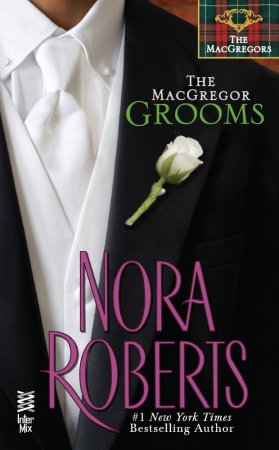 The MacGregor Groom
The MacGregor Groom Irish Rebel
Irish Rebel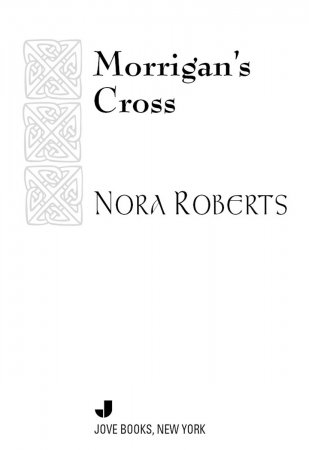 Morrigan's Cross
Morrigan's Cross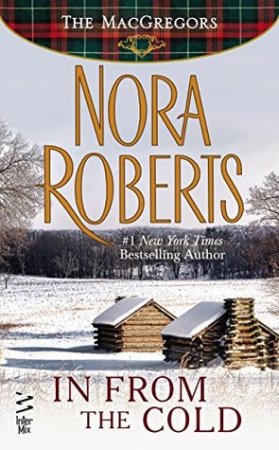 In From The Cold
In From The Cold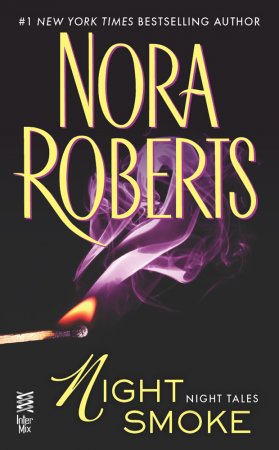 Night Smoke
Night Smoke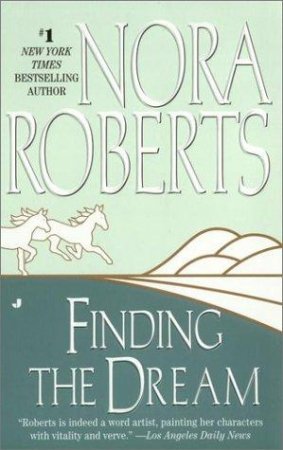 Finding the Dream
Finding the Dream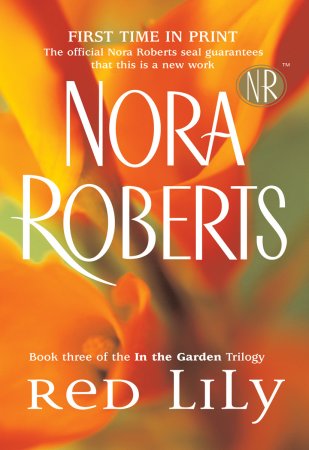 Red Lily
Red Lily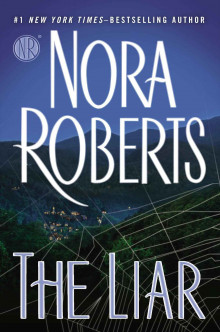 The Liar
The Liar Montana Sky
Montana Sky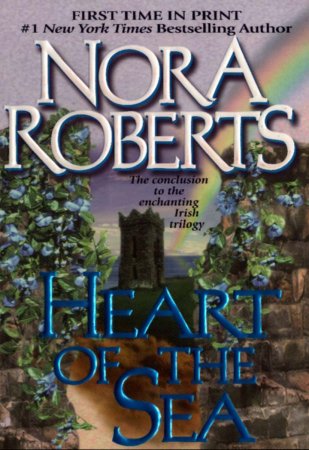 Heart of the Sea
Heart of the Sea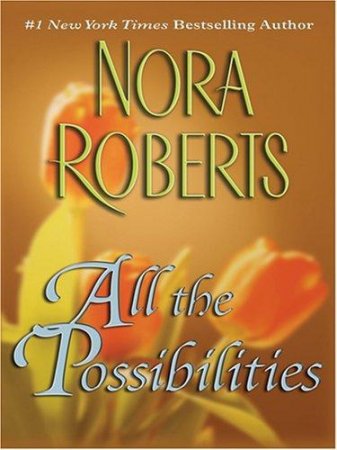 All The Possibilities
All The Possibilities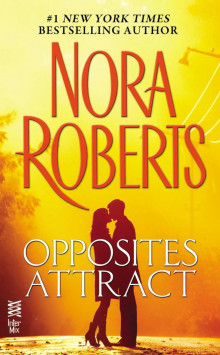 Opposites Attract
Opposites Attract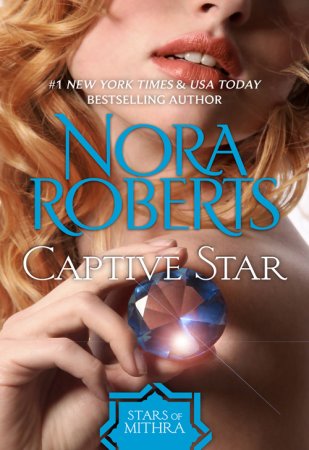 Captive Star
Captive Star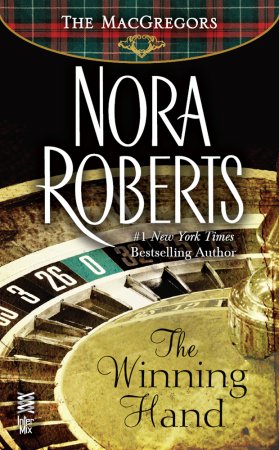 The Winning Hand
The Winning Hand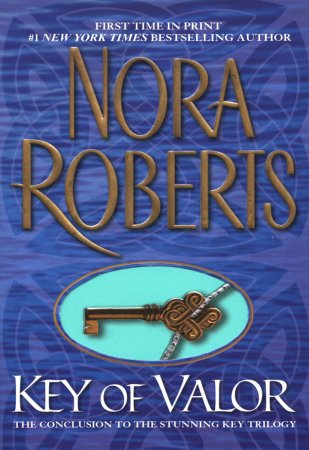 Key of Valor
Key of Valor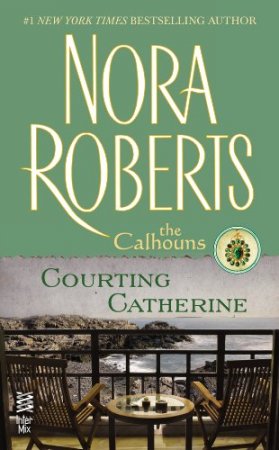 Courting Catherine
Courting Catherine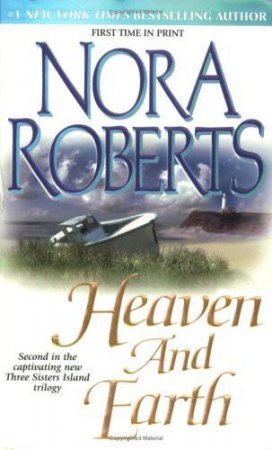 Heaven and Earth
Heaven and Earth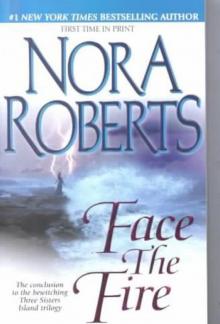 Face the Fire
Face the Fire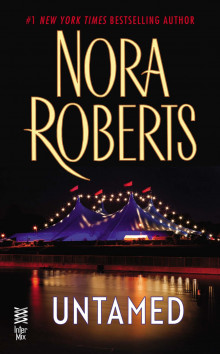 Untamed
Untamed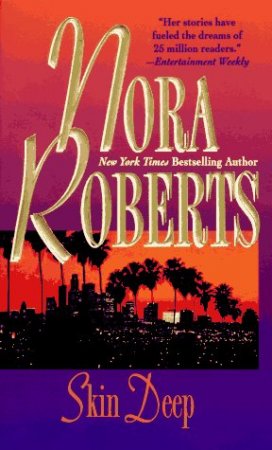 Skin Deep
Skin Deep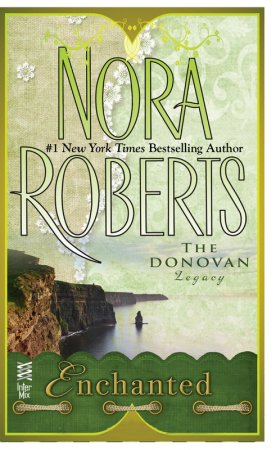 Enchanted
Enchanted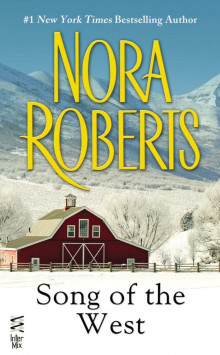 Song of the West
Song of the West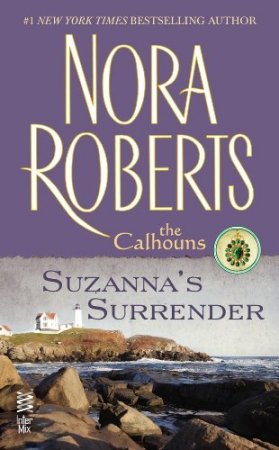 Suzanna's Surrender
Suzanna's Surrender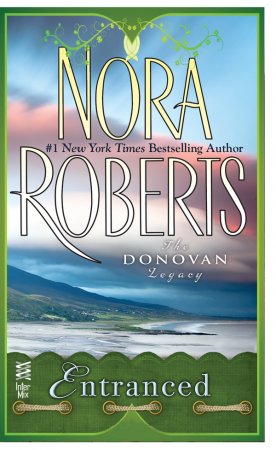 Entranced
Entranced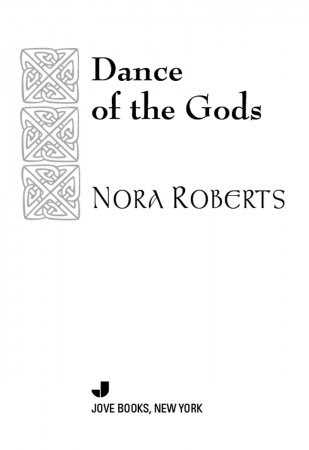 Dance of the Gods
Dance of the Gods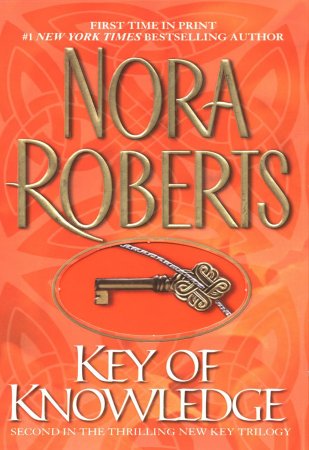 Key of Knowledge
Key of Knowledge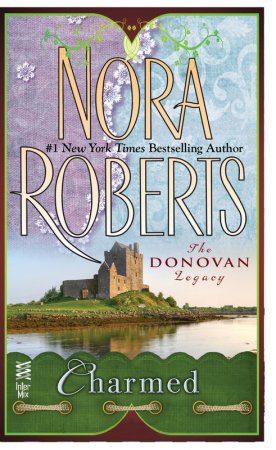 Charmed
Charmed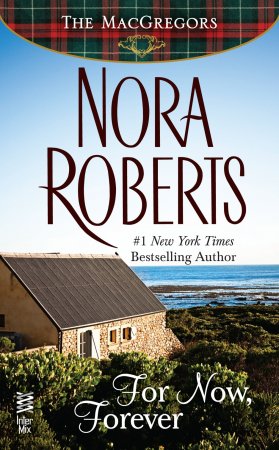 For Now, Forever
For Now, Forever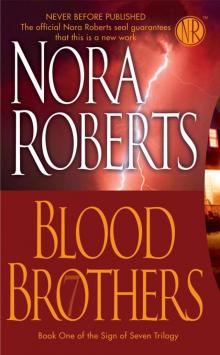 Blood Brothers
Blood Brothers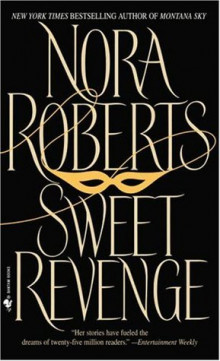 Sweet Revenge
Sweet Revenge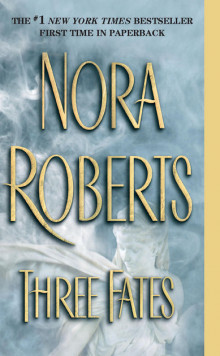 Three Fates
Three Fates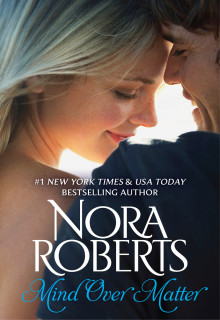 Mind Over Matter
Mind Over Matter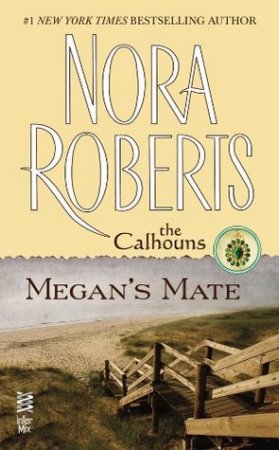 Megan's Mate
Megan's Mate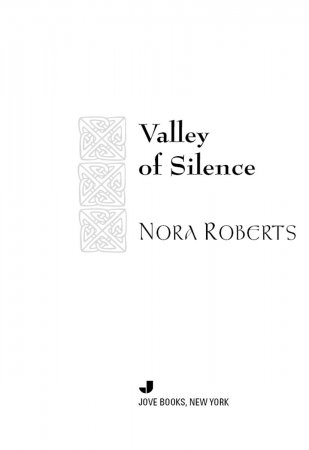 Valley of Silence
Valley of Silence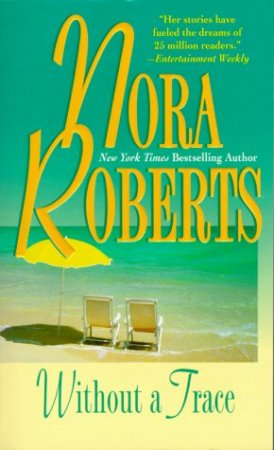 Without A Trace
Without A Trace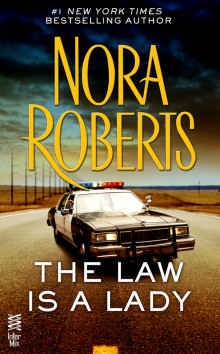 The Law is a Lady
The Law is a Lady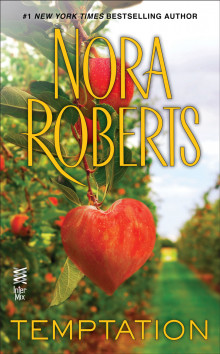 Temptation
Temptation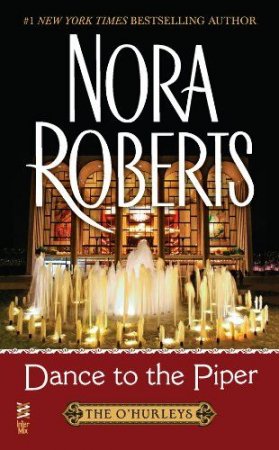 Dance to the Piper
Dance to the Piper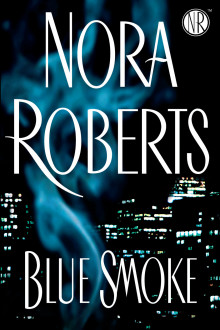 Blue Smoke
Blue Smoke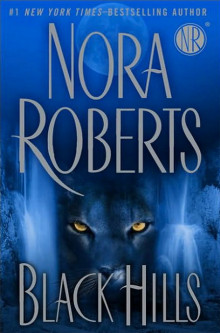 Black Hills
Black Hills The Heart's Victory
The Heart's Victory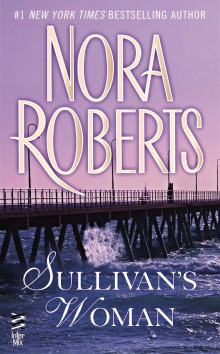 Sullivan's Woman
Sullivan's Woman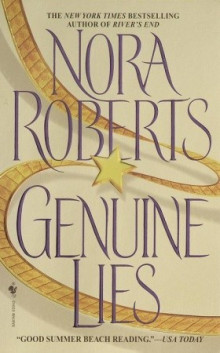 Genuine Lies
Genuine Lies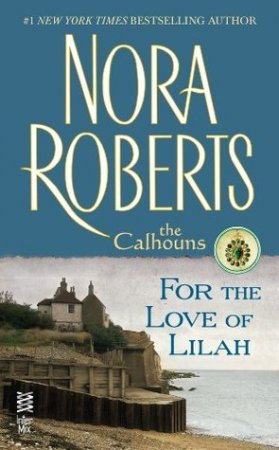 For the Love of Lilah
For the Love of Lilah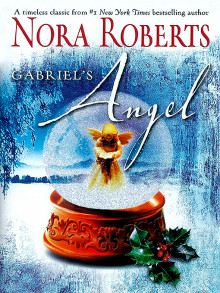 Gabriel's Angel
Gabriel's Angel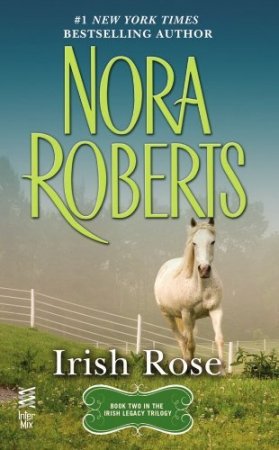 Irish Rose
Irish Rose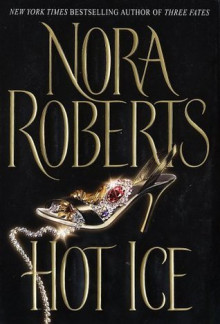 Hot Ice
Hot Ice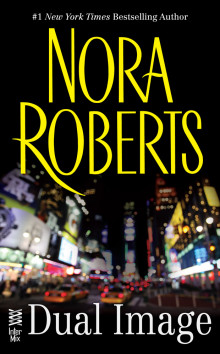 Dual Image
Dual Image Lawless
Lawless Catch My Heart
Catch My Heart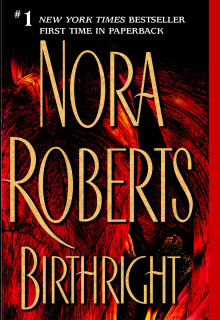 Birthright
Birthright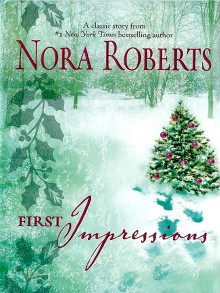 First Impressions
First Impressions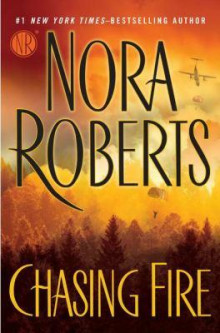 Chasing Fire
Chasing Fire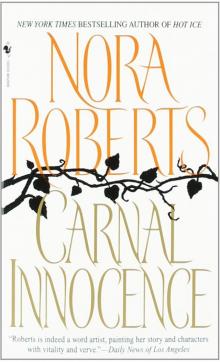 Carnal Innocence
Carnal Innocence Best Laid Plans
Best Laid Plans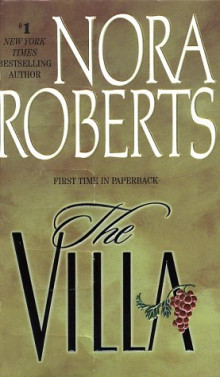 The Villa
The Villa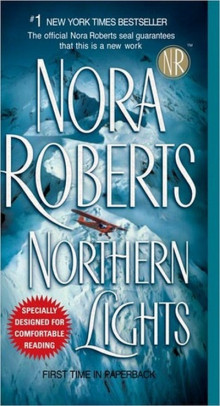 Northern Lights
Northern Lights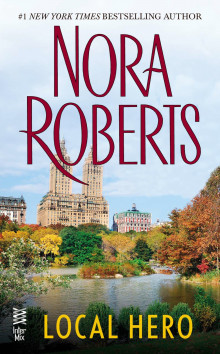 Local Hero
Local Hero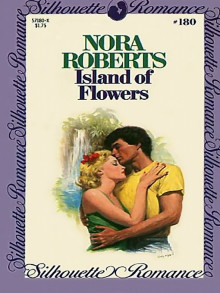 Island of Flowers
Island of Flowers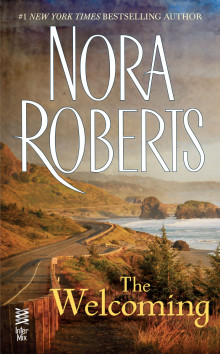 The Welcoming
The Welcoming All I Want for Christmas
All I Want for Christmas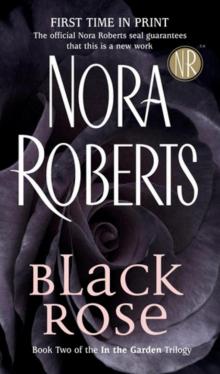 Black Rose
Black Rose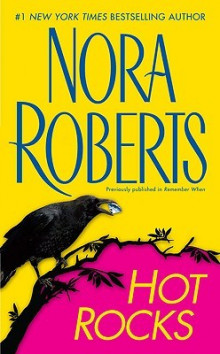 Hot Rocks
Hot Rocks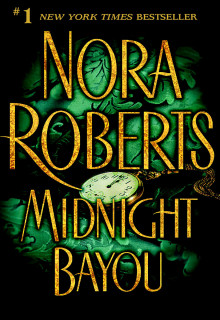 Midnight Bayou
Midnight Bayou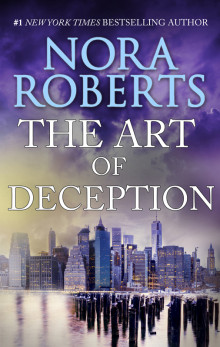 The Art of Deception
The Art of Deception From This Day
From This Day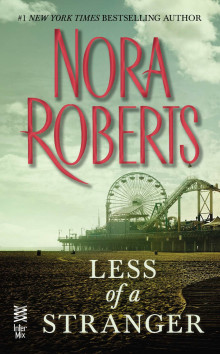 Less of a Stranger
Less of a Stranger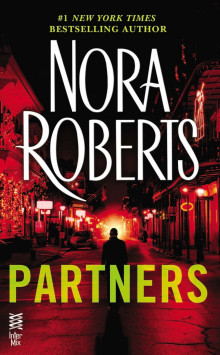 Partners
Partners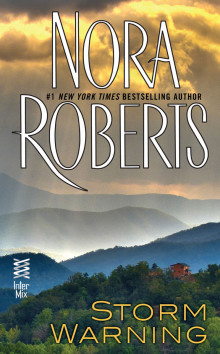 Storm Warning
Storm Warning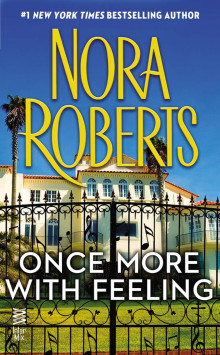 Once More With Feeling
Once More With Feeling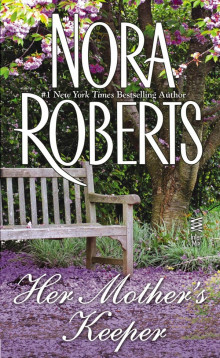 Her Mother's Keeper
Her Mother's Keeper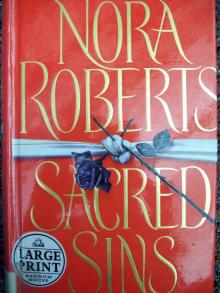 Sacred Sins
Sacred Sins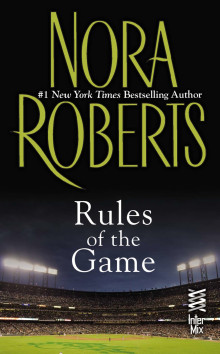 Rules of the Game
Rules of the Game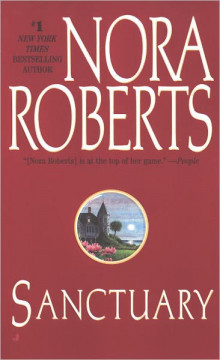 Sanctuary
Sanctuary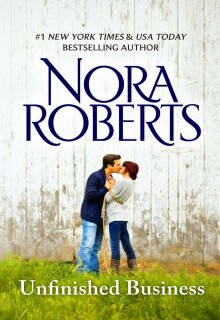 Unfinished Business
Unfinished Business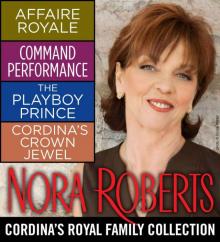 Cordina's Royal Family Collection
Cordina's Royal Family Collection Dangerous Embrace
Dangerous Embrace One Summer
One Summer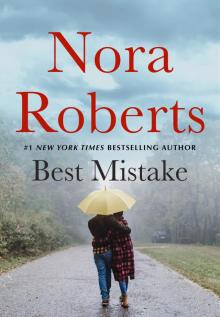 The Best Mistake
The Best Mistake Boundary Lines
Boundary Lines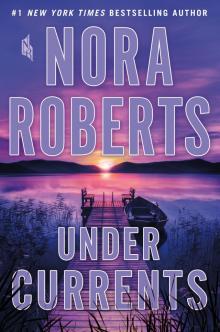 Under Currents
Under Currents The Stanislaski Series Collection, Volume 1
The Stanislaski Series Collection, Volume 1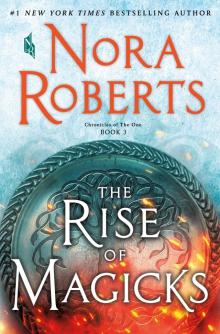 The Rise of Magicks
The Rise of Magicks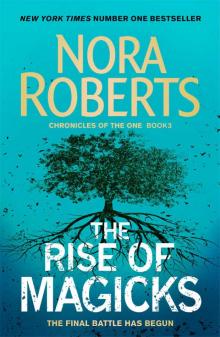 The Rise of Magicks (Chronicles of The One)
The Rise of Magicks (Chronicles of The One)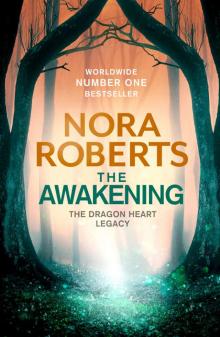 The Awakening: The Dragon Heart Legacy Book 1
The Awakening: The Dragon Heart Legacy Book 1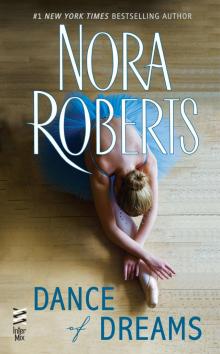 Dance of Dreams
Dance of Dreams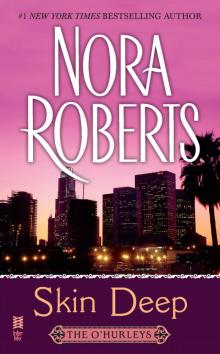 Skin Deep: The O'Hurleys
Skin Deep: The O'Hurleys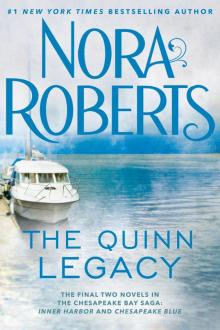 The Quinn Legacy: Inner Harbor ; Chesapeake Blue
The Quinn Legacy: Inner Harbor ; Chesapeake Blue![[Chronicles of the One 03.0] The Rise of Magicks Read online](http://i1.bookreadfree.com/11/chronicles_of_the_one_03_0_the_rise_of_magicks_preview.jpg) [Chronicles of the One 03.0] The Rise of Magicks
[Chronicles of the One 03.0] The Rise of Magicks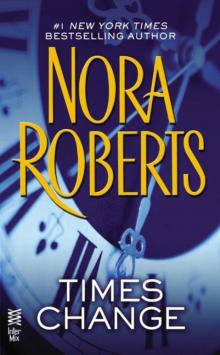 Times Change
Times Change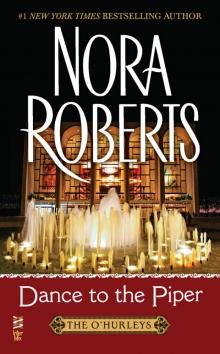 Dance to the Piper: The O'Hurleys
Dance to the Piper: The O'Hurleys Christmas In the Snow: Taming Natasha / Considering Kate
Christmas In the Snow: Taming Natasha / Considering Kate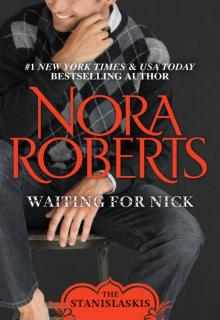 Waiting for Nick
Waiting for Nick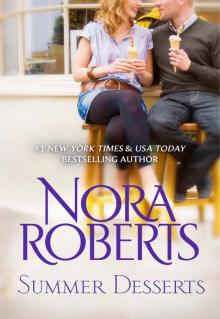 Summer Desserts
Summer Desserts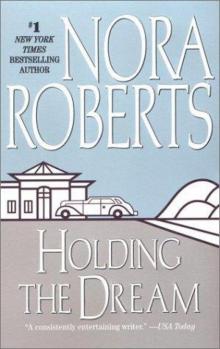 Dream 2 - Holding the Dream
Dream 2 - Holding the Dream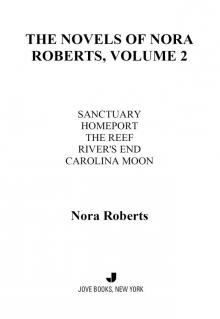 The Novels of Nora Roberts, Volume 2
The Novels of Nora Roberts, Volume 2 In the Garden Trilogy
In the Garden Trilogy Eight Classic Nora Roberts Romantic Suspense Novels
Eight Classic Nora Roberts Romantic Suspense Novels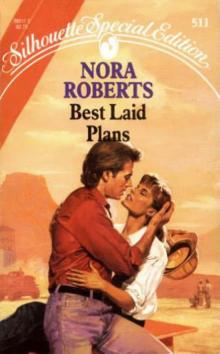 Best Laid Plans jh-2
Best Laid Plans jh-2 From the Heart
From the Heart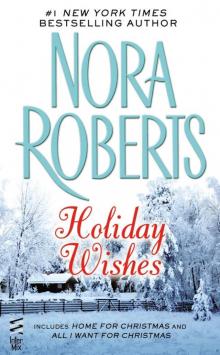 Holiday Wishes
Holiday Wishes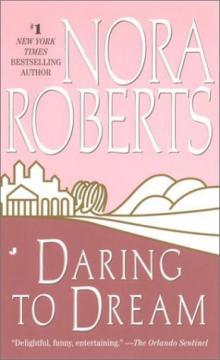 Dream 1 - Daring to Dream
Dream 1 - Daring to Dream Second Nature
Second Nature Summer Pleasures
Summer Pleasures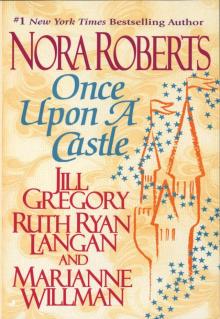 Once Upon a Castle
Once Upon a Castle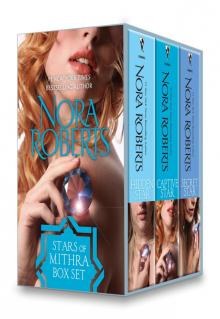 Stars of Mithra Box Set: Captive StarHidden StarSecret Star
Stars of Mithra Box Set: Captive StarHidden StarSecret Star Impulse
Impulse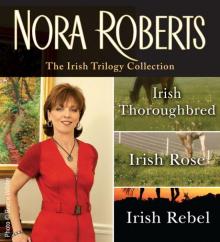 The Irish Trilogy by Nora Roberts
The Irish Trilogy by Nora Roberts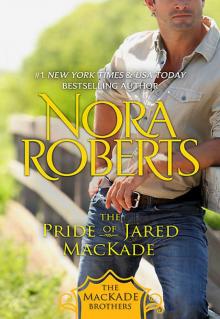 The Pride Of Jared Mackade tmb-2
The Pride Of Jared Mackade tmb-2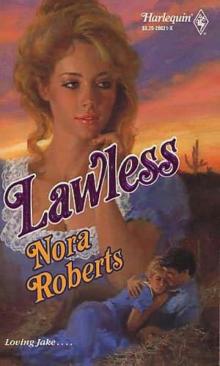 Lawless jh-3
Lawless jh-3 Taming Natasha
Taming Natasha Endless Summer
Endless Summer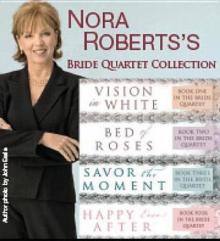 Bride Quartet Collection
Bride Quartet Collection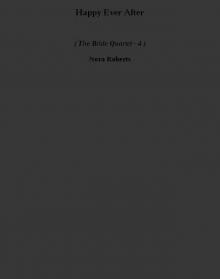 Happy Ever After tbq-4
Happy Ever After tbq-4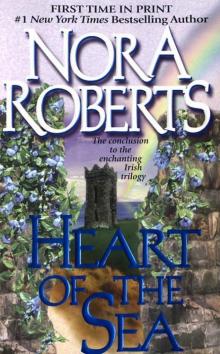 Heart Of The Sea goa-3
Heart Of The Sea goa-3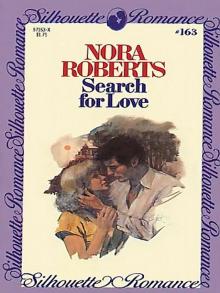 Search for Love
Search for Love Once upon a Dream
Once upon a Dream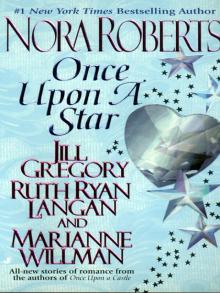 Once Upon a Star
Once Upon a Star Dream Trilogy
Dream Trilogy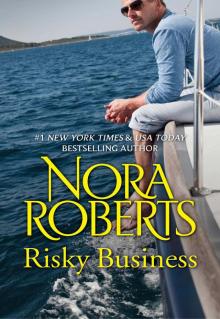 Risky Business
Risky Business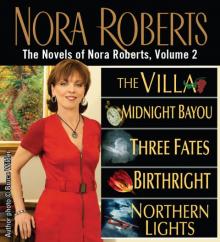 The Novels of Nora Roberts, Volume 3
The Novels of Nora Roberts, Volume 3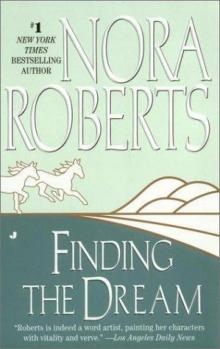 Dream 3 - Finding the Dream
Dream 3 - Finding the Dream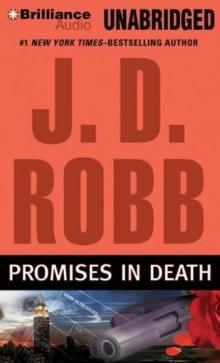 Promises in Death id-34
Promises in Death id-34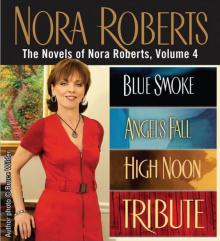 The Novels of Nora Roberts, Volume 4
The Novels of Nora Roberts, Volume 4 The Perfect Hope ib-3
The Perfect Hope ib-3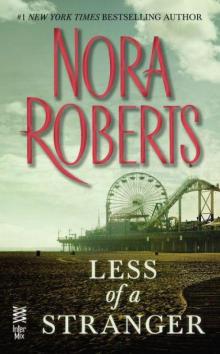 Less than a Stranger
Less than a Stranger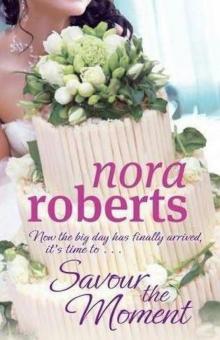 Savour the Moment: Now the Big Day Has Finally Arrived, It's Time To...
Savour the Moment: Now the Big Day Has Finally Arrived, It's Time To...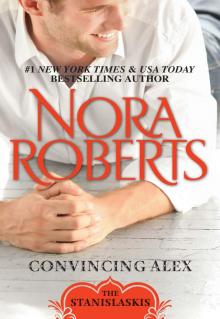 Convincing Alex
Convincing Alex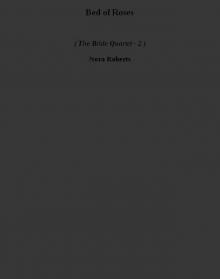 Bed of Roses tbq-2
Bed of Roses tbq-2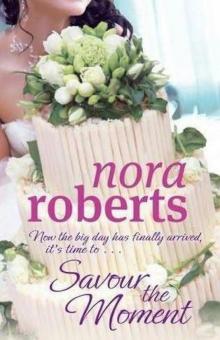 Savour the Moment tbq-3
Savour the Moment tbq-3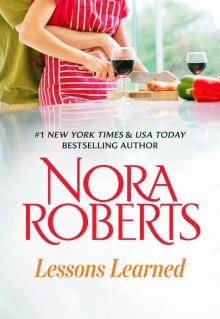 Lessons Learned
Lessons Learned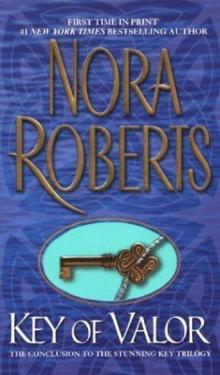 Key Of Valor k-3
Key Of Valor k-3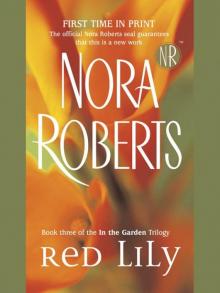 Red lily gt-3
Red lily gt-3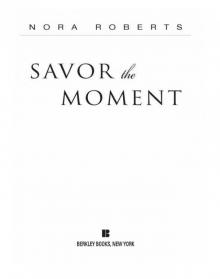 Savor the Moment
Savor the Moment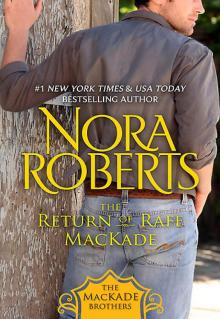 The Return Of Rafe Mackade tmb-1
The Return Of Rafe Mackade tmb-1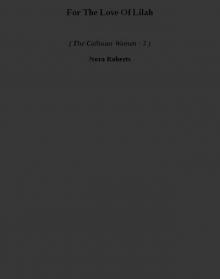 For The Love Of Lilah tcw-3
For The Love Of Lilah tcw-3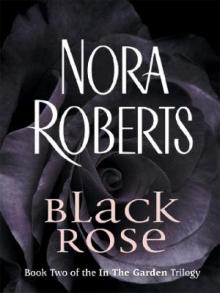 Black Rose gt-2
Black Rose gt-2 Novels: The Law is a Lady
Novels: The Law is a Lady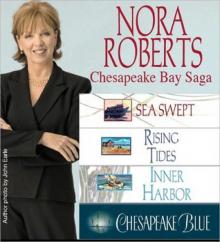 Chesapeake Bay Saga 1-4
Chesapeake Bay Saga 1-4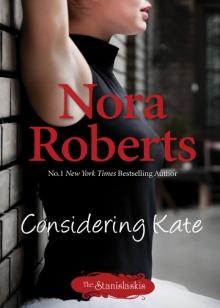 Considering Kate
Considering Kate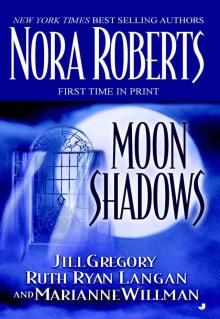 Moon Shadows
Moon Shadows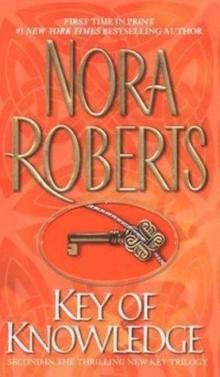 Key of Knowledge k-2
Key of Knowledge k-2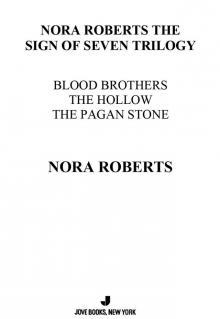 The Sign of Seven Trilogy
The Sign of Seven Trilogy Once Upon a Kiss
Once Upon a Kiss The Novels of Nora Roberts, Volume 5
The Novels of Nora Roberts, Volume 5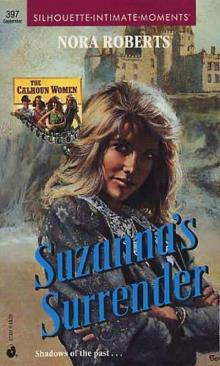 Suzanna's Surrender tcw-4
Suzanna's Surrender tcw-4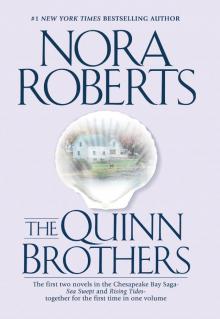 The Quinn Brothers
The Quinn Brothers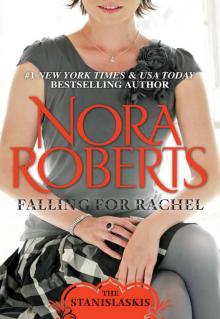 Falling for Rachel
Falling for Rachel Brazen Virtue
Brazen Virtue Time Was
Time Was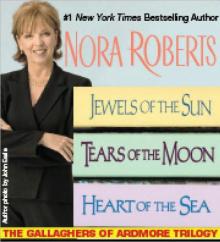 The Gallaghers of Ardmore Trilogy
The Gallaghers of Ardmore Trilogy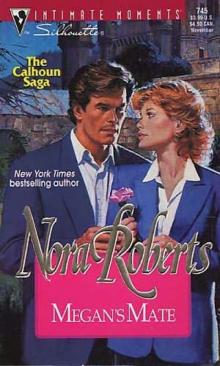 Megan's Mate tcw-5
Megan's Mate tcw-5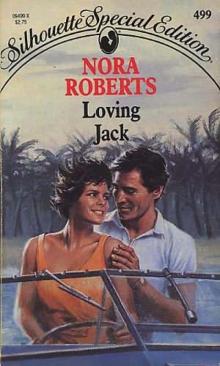 Loving Jack jh-1
Loving Jack jh-1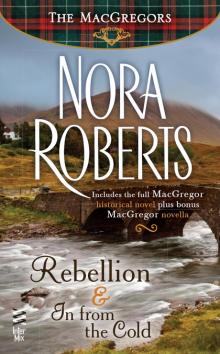 Rebellion & In From The Cold
Rebellion & In From The Cold Blue Dahlia gt-1
Blue Dahlia gt-1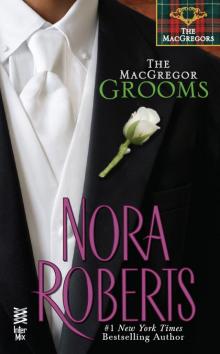 The MacGregor Grooms
The MacGregor Grooms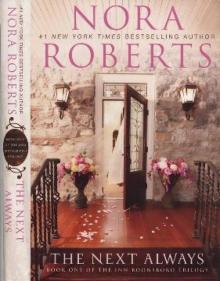 The Next Always tibt-1
The Next Always tibt-1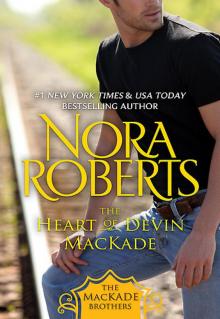 The Heart Of Devin Mackade tmb-3
The Heart Of Devin Mackade tmb-3 The Novels of Nora Roberts Volume 1
The Novels of Nora Roberts Volume 1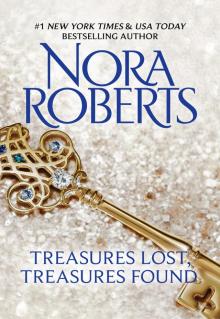 Treasures Lost, Treasures Found
Treasures Lost, Treasures Found Nora Roberts's Circle Trilogy
Nora Roberts's Circle Trilogy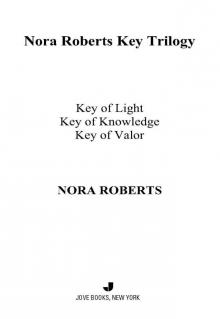 The Key Trilogy
The Key Trilogy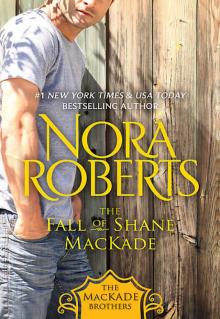 The Fall Of Shane Mackade tmb-4
The Fall Of Shane Mackade tmb-4 A Will And A Way
A Will And A Way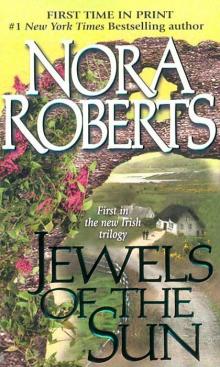 Jewels of the Sun goa-1
Jewels of the Sun goa-1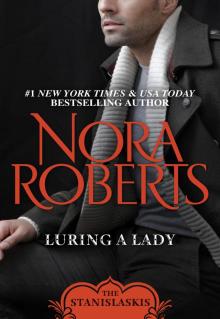 Luring a Lady
Luring a Lady